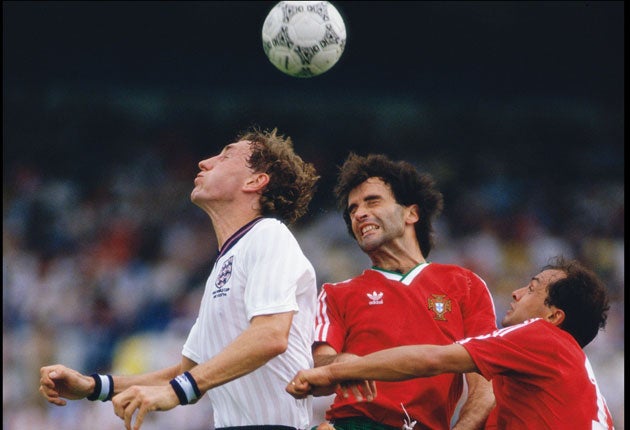How much can we learn from England's first game?
Does an early wobble always preceed a disaster? Is a good win a sure sign of great things to come? Not necessarily.

England 2-0 Chile, 1950, Rio de Janeiro
England's first World Cup tie, having finally deigned to enter a competition that began in 1930, produced a result that appeared to confirm their presumed superiority.
England, without playing particularly well, eased to a 2-0 win thanks to goals from Stan Mortensen and Wilf Mannion. In an early taste of the game's internationalisation Chile included Newcastle striker George Robledo.
The significance of this match is not what happened, but what followed. The party were now joined in Brazil by Stanley Matthews, who had been on an FA tour of Canada, but Arthur Dewey, Football League president and the only England selector present, saw no reason to change a winning team. With Matthews watching from the stands England (who did include Billy Wright, Tom Finney and Alf Ramsey) subsequently lost to the US. Matthews was restored to the side for the final group match but defeat to Spain meant England returned home early, and somewhat chastened.
England 0-0 Uruguay, 1966, London
Sir Alf Ramsey's boast, upon becoming England manager four years prior, that England would win the World Cup, looked lame after this leaden opening match. Uruguay, winners as recently as 1950, but already fading, came to spoil and did so, frustrating their opponents and a capacity Wembley crowd with a very defensive display. John Connelly managed to steer a header onto Ladislao Mazurkiewicz's bar but England mustered little else.
Three weeks later England were world champions, but neither Connolly, nor Jimmy Greaves who also began this match, were in the team. Geoff Hurst and Martin Peters, who had only made their debuts in February and May respectively, were in and the system had changed from 4-3-3 to 4-4-2. It was neither the first, nor last, example of how teams change in competition, but it is one of the most significant.
England 3-1 France, 1982, Bilbao
England's best World Cup start, a volleyed goal from Bryan Robson after 27 seconds catching out all those television viewers back home who were still getting a beer from the fridge. A French side that included Michel Platini, Alain Giresse and Dominque Rocheteau levelled after 25 minutes but England went on to win with another goal from the outstanding Robson, and a third by Paul Mariner.
England looked set fair but as the tournament wore on a lack of creativity and goals (Trevor Brooking and Kevin Keegan were missing until the final game) bedevilled them. Ron Greenwood's team, though undefeated, went out at the second group stage while the French blossomed to reach the last four. The winners, though, were Italy who began with three draws, qualifying ahead of Cameroon by scoring two goals to their one, before coming alive in the later stages.
England 0-1 Portugal, 1986, Monterrey
With both teams affected by the heat England were mediocre, and Portugal worse, but it was the latter who won with Carlos Manuel netting with 15 minutes to go. England, playing 4-3-3, with Chris Waddle, Gary Lineker and Mark Hateley in attack, looked too predictable.
This was only England's second defeat in an opening match. The first occasion was in Chile in 1962, a 2-1 loss to Hungary. England qualified, but in second place which meant they met Brazil in the quarter-finals and went out. The 1986 defeat looked even more damaging when England were held 0-0 by Morocco in their next match, with Bryan Robson injured and Ray Wilkins dismissed. In the event they beat Poland 3-0 to qualify and were only stopped by the best, and worst, of Maradona.
England 1-1 Republic of Ireland, 1990, Cagliari
The Italian sports paper, La Gazzetta dello Sport, responded to this match with the headline, "No football, we're English". All of the participants played in the Football League, which featured plenty of teams in thrall to the long-ball, but none as much as Jack Charlton, Ireland's English manager. Despite the presence of Paul Gascoigne, Chris Waddle and Peter Beardsley in the England team they were unable to impose a passing game – the match stunk the place out. Gary Lineker scored early for England but Kevin Sheedy levelled with 17 minutes left.
The Sun demanded: "Bring them Home." Fortunately no one listened. Bobby Robson brought in Mark Wright as sweeper, David Platt replaced the injured Bryan Robson, and England went all the way to that semi-final penalty shoot-out.
Subscribe to Independent Premium to bookmark this article
Want to bookmark your favourite articles and stories to read or reference later? Start your Independent Premium subscription today.

Join our commenting forum
Join thought-provoking conversations, follow other Independent readers and see their replies